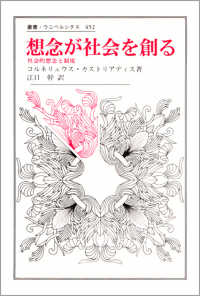- ホーム
- > 洋書
- > 英文書
- > Business / Economics
Full Description
The Handbook of Experimental Economic Methodology, edited by Guillaume R. Fréchette and Andrew Schotter, aims to confront and debate the issues faced by the growing field of experimental economics. For example, as experimental work attempts to test theory, it raises questions about the proper relationship between theory and experiments. As experimental results are used to inform policy, the utility of these results outside the lab is questioned, and finally, as experimental economics tries to integrate ideas from other disciplines like psychology and neuroscience, the question of their proper place in the discipline of economics becomes less clear.
This book contains papers written by some of the most accomplished scholars working at the intersection of experimental, behavioral, and theoretical economics talking about methodology.
It is divided into four sections, each of which features a set of papers and a set of comments on those papers. The intention of the volume is to offer a place where ideas about methodology could be discussed and even argued. Some of the papers are contentious---a healthy sign of a dynamic discipline---while others lay out a vision for how the authors think experimental economics should be pursued.
This exciting and illuminating collection of papers brings light to a topic at the core of experimental economics. Researchers from a broad range of fields will benefit from the exploration of these important questions.
Contents
PART ONE: IS EXPERIMENTAL ECONOMICS LIVING UP TO ITS PROMISE? ; 1. Is Experimental Economics Living Up to Its Promise? ; Alvin E. Roth ; PART TWO: THE RELATIONSHIP OF ECONOMIC THEORY TO EXPERIMENTS ; 2. The Relationship of Economic Theory to Experiments ; David K. Levine and Jie Zheng ; 3. On the Relationship Between Economic Theory and Experiments ; Andrew Schotter ; 4. Enhanced Choice Experiments ; Andrew Caplin and Mark Dean ; 5. Intelligent Design: The Relationship of Economic Theory to Experiments: Treatment driven Experiments ; Muriel Niederle ; Shorter Papers and Comments: ; 6. The Interplay between Theory and Experiments ; Leeat Yariv ; 7. Maxims for Experimenters ; Martin Dufwenberg ; 8. What is an Economic Theory That Can Inform Experiments? ; Uri Gneezy and Pedro Rey-Biel ; PART THREE: PSYCHOLOGY AND ECONOMICS: A COMPARISON OF METHODS ; 9. The 1-800 Critique, Counter-Examples, and the Future of Behavioral Economics ; Ido Erev and Ben Greiner ; 10. A General Model for Experimental Inquiry in Economics and Social Psychology ; J. Keith Murnighan ; 11. Psychology and Economics: Areas of Convergence and Difference ; Tom R. Tyler and David Amodio ; Shorter Papers and Comments: ; 12. The Hammer and the Screwdriver ; Gary Charness ; 13. Discussion of "Psychology and Economics: Areas of Convergence and Difference" ; Theo Offerman ; PART FOUR: THE LAB AND THE FIELD ; Reprint: What Do Laboratory Experiments Measuring Social Preferences Reveal About the Real World? ; Steven D. Levitt and John A. List ; 14. The Promise and Success of Lab-Field Generalizability in Experimental Economics: ; A Critical Reply to Levitt and List ; Colin F. Camerer ; 15. Theory, Experimental Design and Econometrics Are Complementary (And So Are Lab and Field Experiments) ; Glenn W. Harrison, Morten Lau, and E. Elisabet Rutstrom ; 16. Laboratory Experiments: The Lab in Relationship to Field Experiments, Field Data and Economic Theory ; John H. Kagel ; 17. Laboratory Experiments: Professionals versus Students ; Guillaume R. Frechette ; Shorter Papers and Comments: ; 18. The External Validity of Laboratory Experiments: The Misleading Emphasis on Quantitative Effects ; Judd Kessler and Lise Vesterlund ; 19. The Lab and the Field: Empirical and Experimental Economics ; David Reiley ; 20. On the Generalizability of Experimental Results in Economics ; Omar Al-Ubaydli and John A. List








